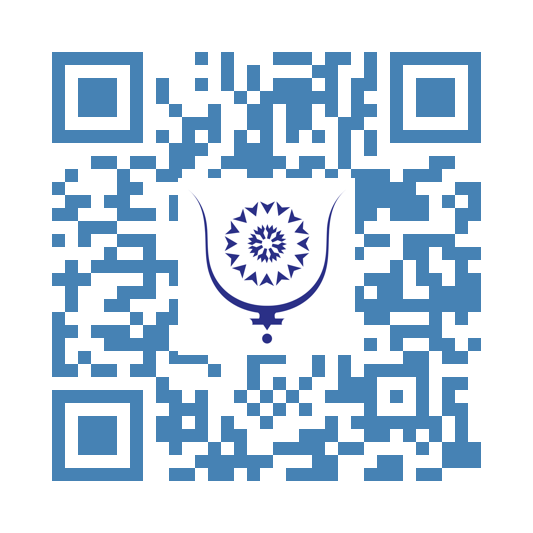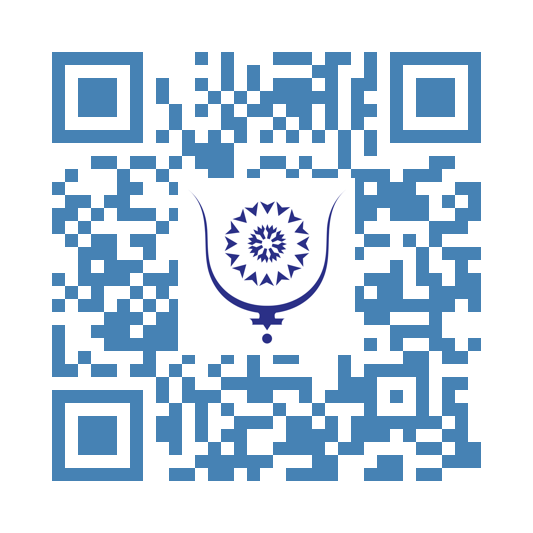Jacob Zuma’s Visit to Morocco Sparks Diplomatic Shake-up Over Moroccan Sahara Conflict
190
The visit of Jacob Zuma to the Kingdom of Morocco triggered a desperate diplomatic response from the Polisario Front in South Africa, marking a significant political upheaval around the Moroccan Sahara conflict. Since then, the Polisario and its patron have shown nervousness reflecting a loss of influence even in African regions previously aligned with separatist positions.
But who is this man whose words have caused such turmoil and dismay?
Jacob Zuma is a South African statesman. He is a former anti-apartheid fighter imprisoned for ten years on the notorious Robben Island. Supported by the African National Congress (ANC), he rose through political ranks to become Vice-President of South Africa from 1999 to 2005, then President from 2009 to 2018, succeeding Thabo Mbeki. Zuma also served as ANC president from 2007 to 2017. Despite legal troubles and leaving the presidency, he maintains serious political weight, notably through the uMkhonto we Sizwe (MK) party he now leads, which became the third-largest political force in South Africa after the May 2024 elections.
Therefore, Zuma is not just any South African speaking on such an important issue for the continent and world.
On July 15, 2025, in Rabat, on behalf of himself and the MK party, Zuma took an unambiguous stance supporting Morocco, breaking with Pretoria's relatively recent official line. He called Morocco's autonomy proposal a "pragmatic and balanced solution," guaranteeing Moroccan sovereignty over its southern provinces while offering substantial local governance to the populations.
This position, officially supported by MK, represents a dramatic turnaround in South Africa and the region. Until now, South Africa backed the puppet Sahrawi Arab Democratic Republic (SADR) and the Polisario Front, framed as pan-African solidarity against colonization, consistent with Algeria's ideological stance. The argument for separatism artificially tied to Morocco's southern provinces ignores that Spanish colonization in this integral part of the Cherifian Empire lasted about 91 years (1884–1975), when Spain declared a protectorate over the Western Sahara region and governed it until its 1975 withdrawal under the Madrid Agreement with Morocco.
Since Nelson Mandela's death, South Africa had quickly sided with Algeria's vision of an independent state between Mauritania and Morocco, overlooking Morocco's historic support for South Africa's anti-apartheid struggle.
In reaction to Zuma's recent statements in Rabat, where he explicitly supported Morocco's autonomy plan for Western Sahara, the Polisario swiftly sent its Foreign Minister Mohamed Yeslem Beissat to Pretoria. This move comes amid tense diplomacy and a major shift in South African policy on the formerly Spanish Sahara. Until then, all political forces in the country were aligned with the government’s position.
Panicked, the Polisario dispatched a delegation led by Beissat, who knows the field well after years representing the entity, officially invited by the ANC under Cyril Ramaphosa to attend a "liberation movements summit" in Pretoria from July 25 to 28. This summit, themed "Defending liberation gains, promoting integrated socio-economic development, and strengthening solidarity for a better Africa," also gathers other supporters of similar causes like Palestinian Jebril Rajoub, allied with Algeria and Polisario. The event, organized by the South African embassy in Algiers, aims solely to back separatist positions and offer support.
The ANC quickly condemned Zuma's support for Western Sahara's Moroccan sovereignty on principle, accusing him of betrayal and dissidence after his split from the party. However, not all ANC factions still adhere strictly to Ramaphosa's official line. Many ANC leaders now recognize that siding with Algeria’s unproductive position has been a significant loss for their country. The influence of Zuma, a powerful political figure, has forced the Polisario and its patron to coordinate their response amid the new diplomatic dynamics intensified by his backing of Morocco.
This diplomatic earthquake happens as several African states have progressively withdrawn recognition of the SADR in favor of the Moroccan plan, potentially further isolating the Polisario and Algeria continentally. During his visit, Zuma reminded the historical role Morocco played in the anti-apartheid struggle, seemingly lamenting his country's unexpected post-Mandela shift. He advocated for a strategic alliance based on respecting African states' territorial integrity, moving away from separatist support—a pragmatic stance shared by many South African officials. A rapprochement between Morocco and South Africa, the only African countries with truly industrial and diversified economies, could benefit both powers and the continent as a whole. The era of imported ideologies serving as democratic facades for military dictatorships is over and no longer effective.
Thus, the Polisario minister’s visit to Pretoria appears a desperate attempt to limit the impact of a shift that could deeply transform political balances in Southern Africa and accelerate Morocco’s strengthening continental and international position
Share:
Jacob Zuma’s Visit to Morocco Sparks Diplomatic Shake-up Over Moroccan Sahara Conflict
copy:
https://bluwr.com/p/290180994
Between Ideology and Pragmatism: The Spanish Radical Left's Controversial Stance on Moroccan Sahara...
516
I confess here that it was the writings of Si Lahcen Hadad that pushed me to take a closer interest in this Spanish left, which positions itself in opposition to the Sánchez government, which is itself left-wing. Not reading Spanish, I am therefore somewhat less inclined to pay attention to the repeated ignominies of this left, sick from not being able to access power, sick from its aborted history, sick from what it actually is. So, to exist, it invented a cause. Too bad if it understands nothing about it, too bad if it harms Spain’s interests, too bad if it distorts history, ignores geography and demography, too bad if its reasoning, if it is reasoning at all, is far from logical, too bad if it lies outrageously. The important thing is to exist and to appear to the Spanish public as the defender of the causes of the most deprived... No matter if those people harmed the Spanish people; no matter if they have Spanish blood on their hands. Manifest bad faith.
In Spain, therefore, a significant part of the radical left, mainly represented by formations such as Unidas Podemos, an alliance between Podemos, Izquierda Unida, and other minority groups, maintains a posture—let’s say critical, if not belligerent—towards the Kingdom of Morocco.
This contradictory position is fed by a historical prism marked by colonial memory, “anti-imperialist” struggles, but also by the question of the Sahara, called the "Spanish Sahara" until 1975, as it was a former territory under Spanish domination until the Green March in 1975.
This radical left considers Morocco a belligerent and threatening actor. The debate is not limited to territorial disputes: it fits into an ideological vision where the Moroccan state is often presented as an authoritarian and repressive regime, described as a neocolonial power. This is what underpins the repeated support for the artificial Sahrawi cause, presented as an anti-colonial and anti-imperialist fight. Support for the Polisario Front thus seems embedded in the DNA of these “gauchos,” regardless of developments.
Historically, several components of the Spanish left have expressed clear support for the Polisario Front, founded in 1973, which was nevertheless supported by Gaddafi, then hosted, supplied, and armed by the Algerian regime with the aim of harming Morocco’s interests. This support manifests itself in various forms:
- Filing parliamentary motions in defense of the right to self-determination for this small part of the Sahara alone;
- Participation in international pro-Polisario forums and associative networks that blindly support it, regardless of reports on the embezzlement of aid, rapes, and flagrant human rights abuses in Tindouf;
- Pressure on the Spanish government and European institutions to recognize the political status of the Sahara, neglecting to mention that it was formerly occupied by their country, as a territory to be decolonized, in opposition to Morocco’s historical sovereignty. Even the autonomy proposal, well known in Spain, does not seem to satisfy them.
However, it should be noted that this support comes in a context of strong internal contestation in Spain. Since the socialist government of Pedro Sánchez expressed its support in 2022 for the Moroccan autonomy plan, this radical position has somewhat fractured. This change reflects a pragmatic adaptation by some to the geopolitical, economic, and migratory realities that closely link the two countries.
Faced with challenges related to managing migratory flows through the occupied enclaves of Ceuta and Melilla, as well as security and economic cooperation with the Kingdom of Morocco, the Spanish government has refocused its diplomacy. This has led to a gradual distancing of the left—but not the radical left—from the Polisario, thus marginalizing its influence on official policy.
In this context, some voices within the radical left still try to persuade European institutions to keep pressure on Morocco, demanding that the so-called Western Sahara remain central to priorities to resolve an “unresolved colonial conflict.” Parliamentary groups and “pro-Sahrawi” NGOs continue to denounce bilateral agreements between Madrid and Rabat, refusing that the issue be sidelined in favor of a more “pragmatic” diplomacy.
Spanish and European institutions, the theater of these ideological tensions, thus see the radical left forces seeking to have the question of the so-called Western Sahara recognized as a “state matter.” They denounce Moroccan control over this dossier and strongly contest the diplomatic normalization policies carried out by Madrid.
This line reflects a deep political fracture, where post-colonial idealism and outdated self-determination claims clash head-on with political realism marked by the search for regional strategic balances.
Support for the so-called Sahrawi cause is not without controversy. Activists, commentators, and victims have recalled that the Polisario Front was, in the past, involved in violent operations in Spanish territorial waters, causing the death of Spanish fishermen.
These painful episodes resonate in Spanish public opinion and fuel a virulent critique of radical positions that support a movement with a past combining political struggle and violent actions. This memory weighs heavily in contemporary debate and is exploited by political forces opposed to these radical left positions, notably the Spanish right.
The question of the Sahara, a territory that was Spanish for a time, remains an important point in relations between Spain and Morocco. However, current political, economic, and security realities push for pragmatic Spanish diplomacy, favorable to strengthened cooperation with Rabat, thus marginalizing the radical stance on both governmental and international stages.
The historical legacy is here perfectly exploited for contemporary necessities in managing Ibero-Moroccan relations.
Today, after consulting numerous articles and writings recounting the positions of this left of another era, I understand a little better Si Lahcen Hadad's fight on the subject, and even more so his sharp responses to the remarks of a certain Ignacio Cembrero, whom I now see only as a bland neurotic. Thank you, Si Lahcen.
One question remains: why is the Moroccan left not more inclined to take a stand and strongly denounce the alienated stance of their Spanish counterparts?
Share:
Between Ideology and Pragmatism: The Spanish Radical Left's Controversial Stance on Moroccan Sahara...
copy:
https://bluwr.com/p/281705762




